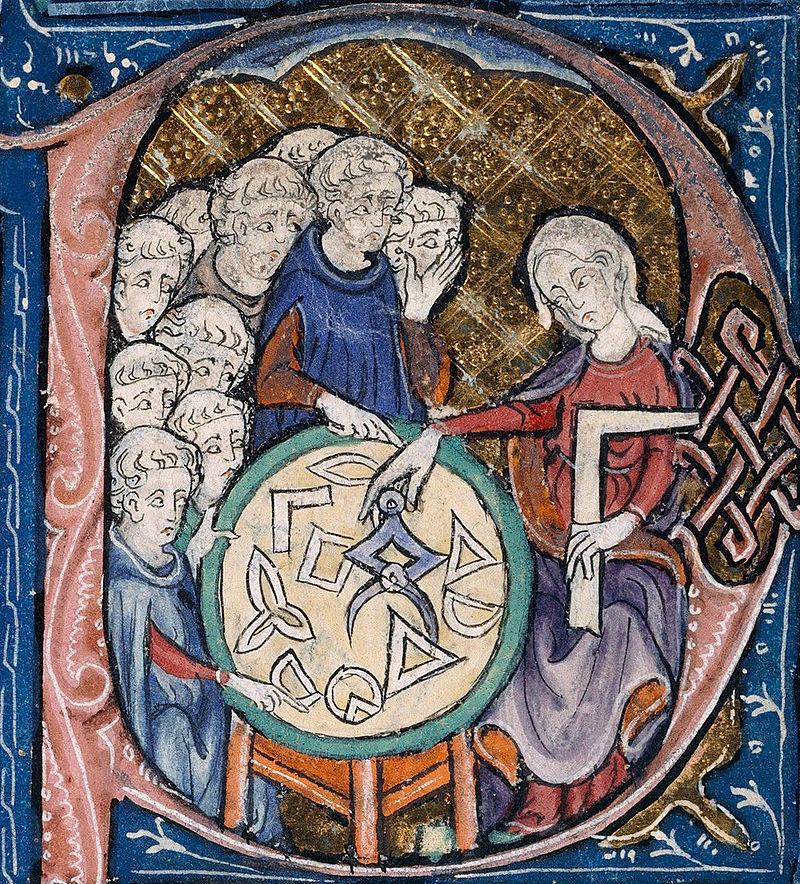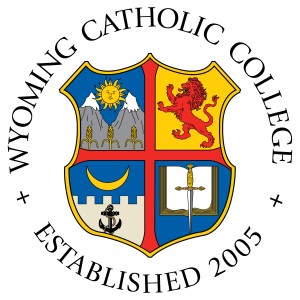Episodes

Tuesday Feb 21, 2017
Tuesday Feb 21, 2017
From the time he was a child, C. S. Lewis was steeped in what we today call “The Great Books” including Chaucer, Spencer, John Milton, and—the subject of our conversation today—Dante.
Lewis read Dante’s Inferno in Italian as a teenager. He read Purgatorio in the hospital during World War I as he recovered from wounds he received in the trenches. Then some fifteen years later—once he gave up his atheism, but before he embrace Christianity—Lewis finally read Paradiso.
This past February 3rd, Dr. Jason Baxter, Assistant Professor of Fine Arts and Humanities at Wyoming Catholic College delivered a lecture entitled “Evil Enchantment and The Weight of Glory: What Dante Taught C.S. Lewis about Poetry.” Dr. Baxter’s expertise includes not only Dante and C. S. Lewis, but all of the philosophers, poets, and writers Lewis studied and loved.

Tuesday Feb 14, 2017
Euclid and the Beauty of Numbers with Dr. Scott Olsson
Tuesday Feb 14, 2017
Tuesday Feb 14, 2017
For most of us mathematics is a wholly practical field of study. It allows us to count and to account. How much material do I need for my home improvement project? What’s my checkbook balance? Is my business profitable? How do I make a recipe for four into a recipe for six? Is it wise to invest in this or that mutual fund? Yet mathematicians tend to have a far loftier view of their field, reflecting on the beauty and the wonder of numbers. “The mathematician does not study pure mathematics because it is useful,” wrote mathematician J.H. Poincare, “he studies it because he delights in it and he delights in it because it is beautiful.”
To help us to understand this fuller view of mathematics we are joined by mathematician and Associate Professor of Mathematics and the Natural Sciences at Wyoming Catholic College, Dr. Scott Olsson.

Monday Feb 06, 2017
Introduction to "The Great Books" with Dr. Thaddeus Kozinski
Monday Feb 06, 2017
Monday Feb 06, 2017
The 16th century English philosopher, statesman and scientist Francis Bacon famously stated, “Some books are to be tasted, others to be swallowed, and some few to be chewed and digested: that is, some books are to be read only in parts, others to be read, but not curiously, and some few to be read wholly, and with diligence and attention.”
Welcome to this the first and introductory podcast in Wyoming Catholic College’s weekly "After Dinner Scholar" series.
Each podcast will feature an interview with one of our professors who will introduce you to one of the books from the college’s integrated liberal arts curriculum, a book we believe should “be read wholly, and with diligence and attention.”
On this first podcast, we begin by asking: What are The Great Books? What makes them great? And why should they be “be read wholly, and with diligence and attention”?
To answer those questions, we’re joined by Dr. Thaddeus Kosinski. Dr. Kosinski is Associate Professor of Philosophy and Humanities at Wyoming Catholic College as well as our Academic Dean. Prior to earning his Ph.D. in Philosophy from The Catholic University of America, Dr. Kosinski earned a Masters in Liberal Arts studying the Great Books at St. John’s College Graduate Institute in Annapolis, Maryland.

